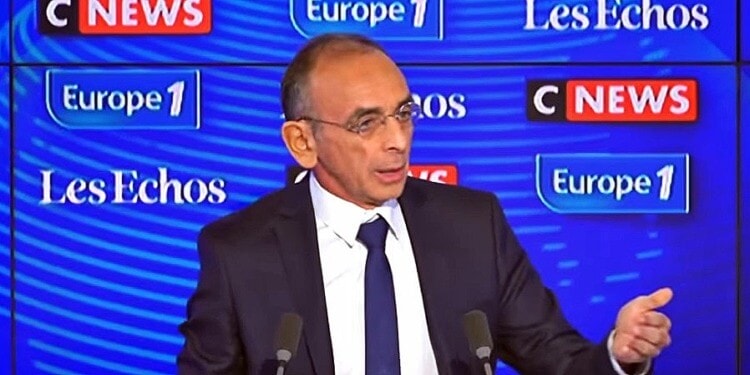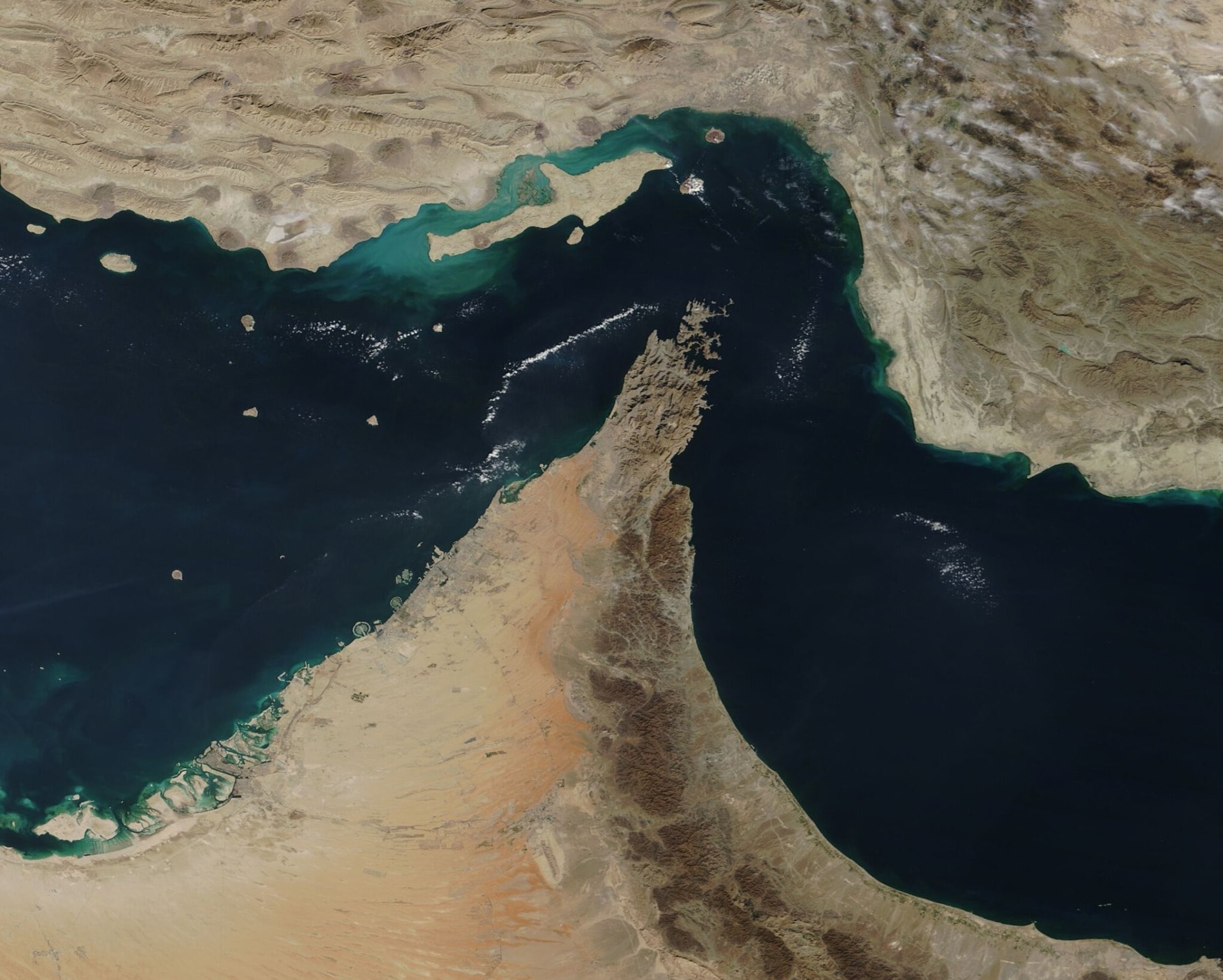A French reporter, Vincent Bresson (age 27), has just published a book about his experience spending more than three months inside the highly controversial Zemmour campaign, infiltrating his team. The UK Guardian dubbed Eric Zemmour (age 63 ) a “media pundit”, a term that credits him with far more importance than he has – his extremist populist declarations on TV shows do go viral on social media just the way QAnon messages do, but he is no pundit, he has no expertise of any sort beyond his journalistic experience.
Today, invited to the show Grand Rendez-vous Europe 1 on CNEWS, Zemmour says that if he becomes President he would take France out of NATO:
Zemmour, not a young man (he is 63 years old) is just a regular journalist who started his career writing for the conservative Le Figaro and moved on to news shows on television where his extremist positions won him a following among the far right. Today, he is the favorite on France’s prime rightist TV stream on Youtube, le Livre Noir that doesn’t stop mentioning him.
However, his life took a turn for the better in 2019 when he became an editor and panelist on a daily show broadcast on CNews, financed by the right-wing Vincent Bolloré, a billionaire often mentioned in the press as Sarkozy’s friend and most recently the target of a scathing documentary titled Media Crash – who killed the public debate, a film signed by Luc Hermann and Valentine Oberti.
The documentary, made in just 4 months, focuses on the role of nine French billionaires who own more than 90% of major media in France. It investigates the pressure on journalists, an ongoing hot political issue in France as the French Senate commission of inquiry into media concentration holds its hearings and it zeroes in on Vincent Bolloré, revealing him as the “strong man of Vivendi” who suppressed independent investigations that could harm the Bolloré group and “emptied of their substance” several TV channels (Canal +, iTélé now CNews, Europe 1).
Zemmour started thinking about running for the presidency only a year ago, but last June, most likely with Bolloré’s consent and most certainly (as Zemmour acknowledges himself) with the support of his 28-year old companion, Sarah Knafo he began to make waves in the French media, rapidly gaining in popularity. Knafo, a graduate of the famous ENA, the school of top French bureaucrats and politicians, is the woman who reportedly pushed him to become a candidate for the presidency (and now, according to unconfirmed rumors, carries his child).
By September, the press talked of Zemmour constantly (up to 3 articles per day, notes Bresson) and he came out with a book, cleverly titled La France n’a pas dit son dernier mot (France has not said its last word), a clear call to patriotism. By then, he had openly declared himself a candidate and was running for president in the ongoing French Presidential election which normally plays out in two rounds should no candidate win a majority in the first round: the first is scheduled for April 10, and the runoff on April 24.
Four days ago, as shown in the Politico graph below, Zemmour was placed fourth in the polls, behind the rightwing Les Républicains candidate Valérie Pécresse, the far-right National Rally leader, Marine Le Pen, and the incumbent president, Emmanuel Macron (outlook as shown in its poll of polls compared to 2017):
On 17 February the situation changed dramatically: The latest poll (Ifop for Paris Match, Lci e Sud Radio) showed Zemmour ahead of Le Pen for the first time – putting paid to the famous comment Le Pen reportedly said to Zemmour (still according to Bresson) when he started out on his campaign, telling him that he’d just take votes away from her, compromising her chances while he wouldn’t get “more than 3 percent”. Zemmour didn’t listen and no doubt rightly so, since now he is the candidate standing behind Macron, at 16.5%, half a point ahead of Le Pen.
Zemmour, whose movement started out in January 2021 with the name “les amis d’Eric Zemmour” became a party in December with the new name “Reconquête!” (Reconquest, with the exclamation point), sitting on the far right.
Who is Zemmour?
He was born in Montreuil, a suburb of Paris, from parents of reportedly Jewish-Arab origin but Zemmour himself prefers to indicate that he is of Jewish-Berber origin and that his name means olive tree in Berber. Despite the foreign origin, Zemmour presents himself as a rabid patriot, and unabashedly racist, calling for the abolition of all anti-racist laws in France – not to mention the restoration of the 1803 law calling for all French parents to give their children historically French names.
All this hullabaloo around race and French history should come as no surprise as, so far, he has been twice convicted for racist hate speech and is currently appealing against a third conviction – the only candidate in France ever running for the presidency under the cloud of such convictions.
Racism permeates Zemmour’s campaign although he denies that he is racist – which is hard to believe since he is an ardent promoter of the extreme far-right “great replacement theory” that non-Europeans and non-Christian religions will wash over Europe displacing autochthonous European populations. Clearly, Muslim immigrants are targeted but so are all people of color.
The so-called “replacement theory” flies straight into the evidence regarding migration which is low everywhere in Europe – but no matter, most people in Europe believe that the foreign presence in their society is far larger than it really is. A recent Eurostat survey shows the striking divergence between beliefs or perception of the reality of migration and the hard facts that actually define that reality:
 As the Eurobarometer researchers note: “in 19 of the 28 Member States the estimated proportion of the population who are immigrants is at least twice the size of the actual proportion of immigrants. In some countries, the ratio is much higher: in Romania, Bulgaria and Poland, the estimated proportion of immigrants is over eight times greater than the actual figure, and in Slovakia it is nearly 14 times the actual figure.” France comes out better than the latter group (in the above graph, FR stands for France) but still, French perception of immigrants stands at something over twice the real number, a serious misreading of the reality on the ground and a reflection of fears caused by globalization and the traditional distrust of foreigners.
As the Eurobarometer researchers note: “in 19 of the 28 Member States the estimated proportion of the population who are immigrants is at least twice the size of the actual proportion of immigrants. In some countries, the ratio is much higher: in Romania, Bulgaria and Poland, the estimated proportion of immigrants is over eight times greater than the actual figure, and in Slovakia it is nearly 14 times the actual figure.” France comes out better than the latter group (in the above graph, FR stands for France) but still, French perception of immigrants stands at something over twice the real number, a serious misreading of the reality on the ground and a reflection of fears caused by globalization and the traditional distrust of foreigners.
Those fears and distrust are precisely the emotions that Zemmour cleverly targets in his speeches – and in this, he follows precisely the Trump model. Indeed, Trump recently took note and the two reportedly had a warm 40-minute telephone conversation last Monday, with Trump encouraging Zemmour to “‘never give in, hold on, be brave, it’s tenacity and endurance that end up paying at the end of a campaign,’” according to Zemmour’s spokesperson Guillaume Peltier.
Vincent Bresson, the young journalist who infiltrated Zemmour’s campaign, sheds further light on how it operates, following a Trumpian model, spreading fake news and extremist views
Bresson, who is a freelance journalist who has written for various publications including Le Monde, explained in a recent interview that he decided last summer to infiltrate Zemmour’s campaign because “there was at least a chance he could be president”. He stayed with the Zemmour team from September 2021 to January 2022.
The book, Au Coeur de Z: Un journaliste a infiltré la campagne d’Eric Zemmour (At the Heart of Z: A journalist infiltrated the Eric Zemmour campaign), quickly pushed through the publication process, came out this week (February 17). It immediately drew the attention of France’s most respectable news publication, Le Monde, that covered it with a detailed report of his findings.
Bresson said he was surprised by how easy it was to get inside the ranks of his election team and gain everyone’s trust. He attributed that in part to the racism of Zemmour fans: As Bresson is white and has a classic Catholic and French first name (Vincent), he was immediately seen as “one of them”, a “trusted member of Generation Z”, as the Zemmour supporters call themselves.
Perhaps that is the other surprise: The youth of Zemmour’s supporters, indeed, most of them are Generation Z, in their early twenties or younger.
One explanation may be the influence of Zemmour’s young companion, Sarah Knafo. She is the campaign’s “strategy director” and participates in all the meetings and events, curing the smallest details, like the size of the cake the candidate would share at a recent encounter with farmers in the Beauce region. Recently, on BFMRV television channel, Zemmour said she was her top collaborator – “there would have been no campaign without her” – and asked for respect for his privacy (he is still married to a lawyer and has three children).

Bresson reports in his book that he witnessed many racist remarks from both senior staff and volunteers. “Officially, if you’re black or of Arab origin, Zemmour believes in ‘assimilation’: work hard, adapt to ‘French culture’, and you can be French ‘like the rest’,” he explained. “In reality, it seems some Zemmourists will always see you as ‘less French’. And these are supposedly the more moderate, publicly acceptable faces of the campaign. I think it poses serious questions about promises of equal treatment for all under a Zemmour presidency.”
Many of his young supporters come from UNI, a right-wing university association, and, going through Bresson’s book, it is clear that most of them come from the catholic right and far-right, especially Le Pen’s party. Only a handful come from the left, and then the leftists in the family are usually the parents.
Zemmour’s campaign strategy: Targeting Facebook, Twitter and Wikipedia, following the well-tested Trump model
Zemmour’s supporters are fighting hard for him and they are Internet-savvy. They have set up what looks like a special hacker force, 600-strong volunteers led by Samuel Lafont, to invade all the major social media, Facebook and Twitter, and perhaps more surprisingly, also Wikipedia. But this makes sense: Wikipedia’s page on Zemmour is the most visited on the site in France in 2021, with over 5 million views (Queen Elizabeth comes next with 4.5 million and Cristiano Ronaldo third with 3.9 million). So the campaign managers set up a special unit (called “Wikizedia”) to deal with Zemmour’s page and ensure he shows up with links in as many other pages as possible.
The objective for Zemmourians is to appear to be a far bigger movement than they actually are. They cleverly use well-established tactics to impose themselves across the main social media platforms and their tactics are the envy of the other candidates. Marine Le Pen in particular, is fighting hard against Zemmour, and recently suspended her campaign spokesman, Nicolas Bay, accusing him of “high treason” for feeding information to the Zemmour campaign for months and calling him a “slimy slug”.
On Facebook in particular, Zemmour supporters show up as members of numerous Facebook groups and flood them with comments, articles and skewed news favourable to Zemmour. All the propaganda material is provided to them by a couple of savvy campaign managers and for the team, it’s just a simple matter of copy and paste.
The outlook – a French Trump?
Too soon to tell whether Zemmour will or even can win against Macron, a sitting President. True, Macron has displeased many and the unfortunate Gilets Jaunes episode caused his popularity to drop vertiginously and has left bitter memories. So Macron is indeed a possible loser.
But Zemmour’s campaign is definitely breaking up the right and Macron finds himself with an opposition that has broken apart, with Zemmour on one side and Marine Le Pen on the other. Does that mean Valérie Pecresse could win? Only if she makes it to the second round, which for now, doesn’t look likely.
Still, Zemmour’s campaign raises questions about the maturity of the French electorate. Over two hundred years ago, Napoleon, a foreigner with a strong accent in French became the Emperor of France without anyone complaining that he was Corsican of Italian origin; on the contrary, he was considered a great man by the overwhelming majority, and this, for generations. Today, everyone seems to forget that Zemmour with his foreign origin is an unlikely paladin of French chauvinism and French exceptionalism.
Not to mention his complete lack of government experience. It’s not his degree in “sciences-po” (political science) obtained over 40 years ago that can make the difference or help him govern a nation. He himself admits ignorance on all economic matters and his economic programme draws from Fillon, the right-wing politician who lost to Macron in 2017, and Trump. It’s not a programme but a mixed bag of goodies for the rich and poor – including massive tax cuts to benefit the wealthy and businesses (on top of the €20 billion cut already applied by Macron’s government), and suppression of public health assistance and pensions for foreigners.
One may well wonder why voters forget to assess the capacities of political candidates; if they did, they would see that Zemmour, despite his verbal virtuosity, is in fact unfit for the job.
Yet, among this general forgetfulness, the French electorate is apparently the easy prey of Trumpian tactics, just the way the American electorate was. Are we going to witness the rise of a Trump 2.0 French or Maghrebian-style? Hopefully not.
Editor’s Note: The opinions expressed here by Impakter.com columnists are their own, not those of Impakter.com. — In the Featured Photo: Zemmour on CNews February 20, 2022 (screenshot of video)










